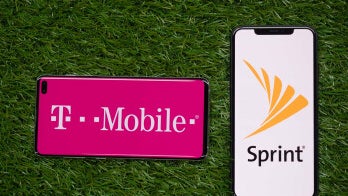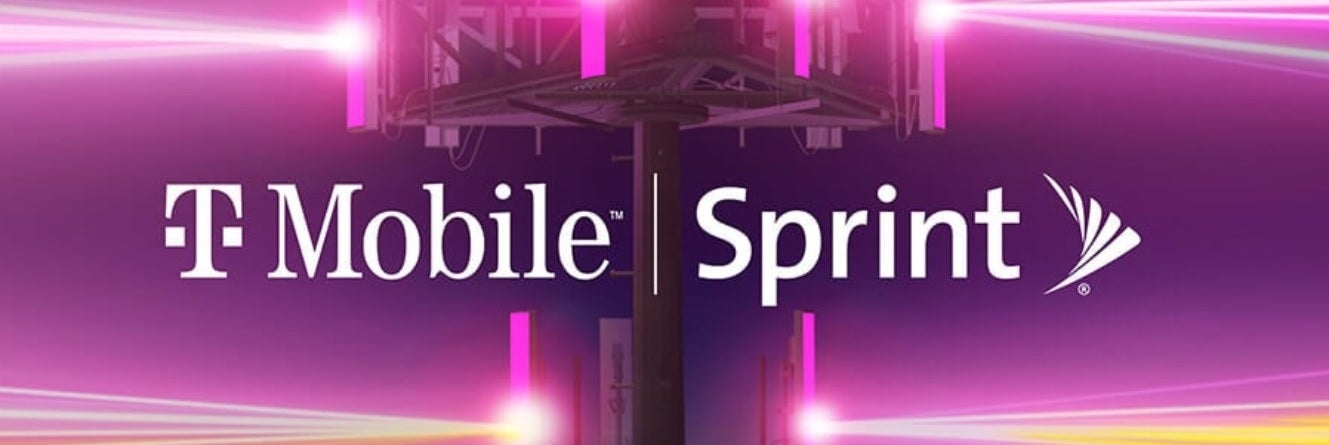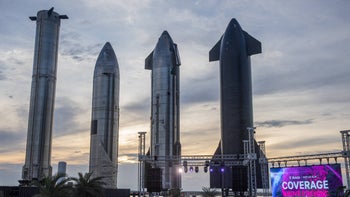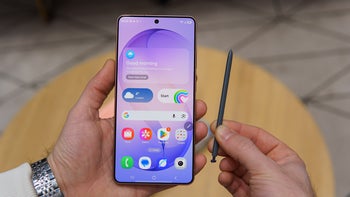"Dishonest" T-Mobile sued by four former Sprint dealers

Four retail wireless dealers have sued T-Mobile over the last few weeks noting that they were forced to go out of business after the latter's merger with Sprint. The four retail firms, Absolute Wireless, Maycom, Solutions Center, and Wireless Express, used to sell wireless service for Sprint. On April 1st, 2020, T-Mobile closed on its hard-fought $26 billion acquisition of Sprint.
While more suits could be filed, The National Wireless Independent Dealer Association (NWIDA) said that thus far it has received copies of court filings from the aforementioned four retail firms from four states. The merger was never about increasing the number of T-Mobile retail locations. The transaction was all about 5G spectrum and picking up Sprint customers.
The T-Mobile-Sprint merger was all about 5G
Sprint owned a large amount of 2.5GHz mid-band spectrum. T-Mobile was smart enough to see that mid-band was the "Goldilocks" of 5G spectrum since it travels farther than high-band airwaves. While it doesn't deliver download data speeds in the range of 1Gbps, it does offer download speeds in the neighborhood of 300Mbps and covers more people than high-band does.

T-Mobile closed its acquisition of Sprint on April 1st, 2020
So in other words, more people can access the mid-band 5G signals than the mmWave high-band signals favored at first by AT&T and Verizon. Until the recent C-band auctions, AT&T and Verizon had little mid-band capabilities, if any, for their 5G build-outs.
NWIDA President Adam Wolf noted that many Sprint locations were right next door to T-Mobile stores which guaranteed that such stores were going to be closed. Wolf said, "How many Sprint stores were next to T-Mobile stores? They were never going to keep both. It makes no economic sense" to keep both stores open. He noted that "Even Starbucks are not next to each other."
Wolf believes that T-Mobile is trying to consolidate by getting rid of the dealers that it doesn't want to keep and that the nation's second-largest wireless provider wants fewer dealers overall. For its part, T-Mobile told Fierce Wireless "We don’t comment on pending litigation, but our dealers are an important part of how we serve our customers and we have a strong relationship with them."
Absolute Wireless, one of the dealers suing T-Mobile, said in its complaint that T-Mobile "forced Absolute Wireless and other dealers out of their existing Sprint contracts, which had years remaining on their terms and which were more favorable than T-Mobile’s contracts." Solution Center's suit explains that the firm was originally a Nextel dealer and after Nextel merged with Sprint, the principal owner, Mark Hudson, tapped into his life savings and opened 28 Sprint stores in over four states.
Unfortunately for Hudson and his 200 employee firm, once the T-Mobile-Sprint deal closed, the company went south ringing up $25 million in damages. Maycom, based in Florida, said in its complaint that before it was exposed to "T-Mobile’s predatory conduct," it worked its way up the ladder over 24 years to become one of the top Sprint dealers in the states.
According to Maycom's filing, "In a matter of months, T-Mobile unlawfully devastated Maycom’s business. When the dust settled, of the 63 stores that Maycom once owned, only 28 remained to be sold at a T-Mobile created depressed value, 4 were given a limited 1 year lease renewal to operate and 31 stores were shuttered by T-Mobile."
In the court filings, T-Mobile was called "dishonest," "fraudulent," "predatory," and "anti-competitive" by the former Sprint dealers.
These suits could be the first four of many more to come
Even while T-Mobile continues to add new customers on a net basis, the number of retail outlets is declining as bigger dealers are buying out smaller ones. Additionally, more and more consumers feel knowledgeable enough to buy their handsets online.
When the merger closed, the number of T-Mobile and Sprint stores was 9,000. Today, that count is less than 7,000. The decline in retail outlets has even had an impact on Metro by T-Mobile stores which numbered over 9,000 at the time of the merger and is now down to less than 8,000.
As for the lawsuits, NWIDA's Wolf firmly believes that more dealers will be taking legal action against T-Mobile and says that in hindsight these four suits will probably be just the first four of many more to come.
Follow us on Google News














Things that are NOT allowed:
To help keep our community safe and free from spam, we apply temporary limits to newly created accounts: